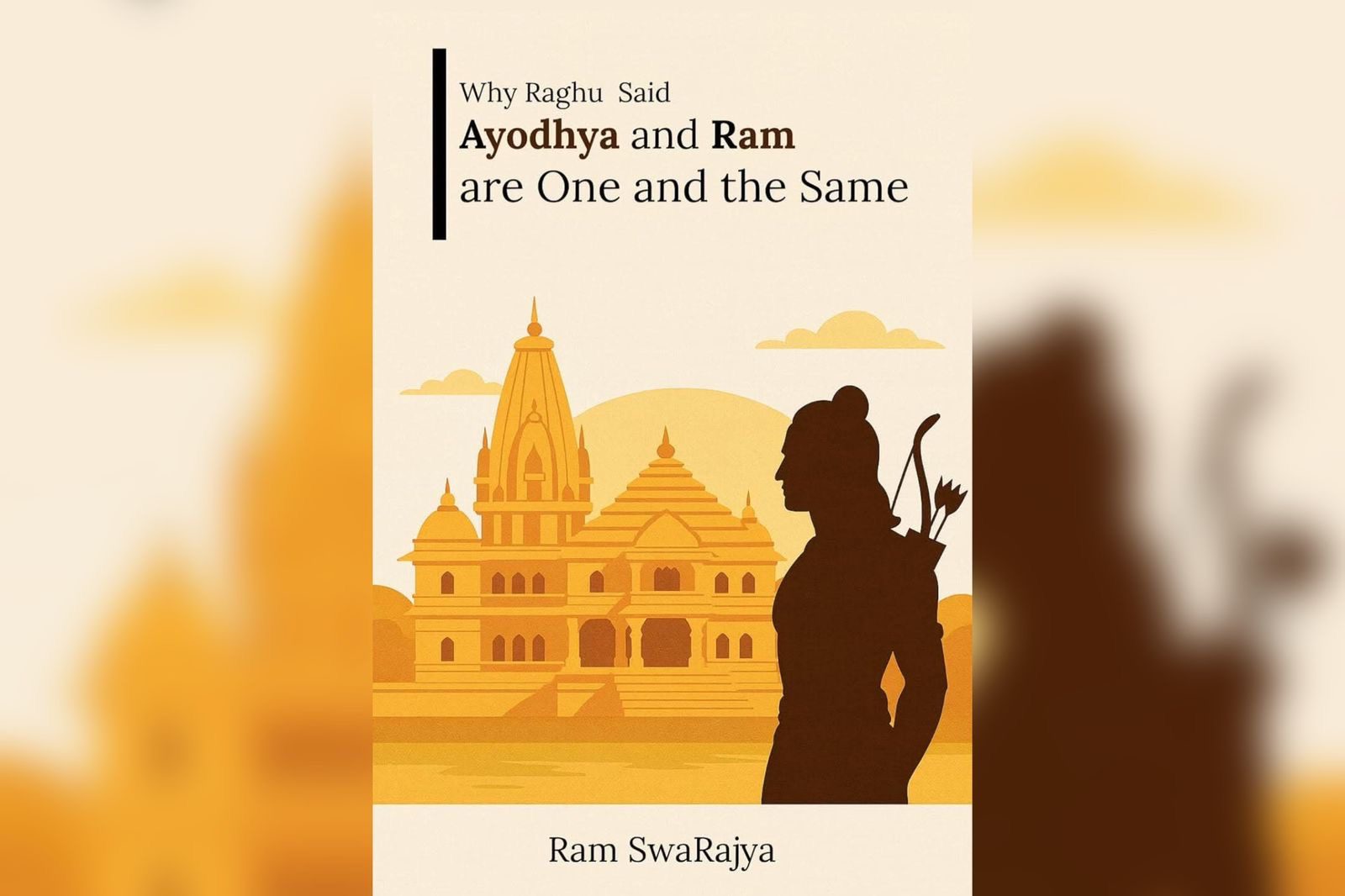“If Rama had an Aadhaar card today,” writes author and spiritual thinker Parvathy Ananthanarayanan Mangala — known by her pen name Ram SwaRajya — “he’d still teach the same truth: Dharma begins not in the government, but in us.”
Through her Ram SwaRajya Library Movement in Ayodhya, Parvathy continues to reinterpret timeless Indian philosophy for the modern world — connecting mythic wisdom with the moral realities of civic life. In her latest reflection, “If Rama Returned Today: The Dharma of the 21st Century,” she imagines how Lord Rama’s ideals would manifest in contemporary society — not as religious doctrine, but as a universal code of conscious living.
Rama Among Us
If Lord Rama were born in the 21st century, Parvathy writes, he would not arrive as a ruler or monarch. He would walk among ordinary people — not to command, but to awaken.
“Would he live like a common citizen, following laws, paying taxes, and carrying an Aadhaar card?” she asks. “Yes — because discipline and integrity were always central to his life. But he would also remind us that laws must serve humanity, not control it.”
Her interpretation of Rama is not otherworldly. It is deeply human — a vision of leadership grounded in humility and participation.
“Rama would not break the system,” she writes. “He would cleanse it — by living rightly within it.”
Rama in the Age of Systems
In Parvathy’s view, modern systems of governance and technology are not obstacles to spirituality — they are tests of awareness. Rama, she says, would navigate these structures with Maryada — the discipline that balances freedom with responsibility.
He would stand in queues, follow civic duties, pay taxes, and obey the law — not out of submission, but out of principle. He would show that obedience and courage can coexist.
Rama, she believes, would oppose corruption not through protest but through example — reminding the world that justice without empathy is hollow, and devotion without action is incomplete.
“Rama Rajya,” she writes, “is not a place on a map. It is a state of mind — a culture of fairness, service, and compassion.”
Building Ethical Ecosystems
In the modern context, Parvathy reimagines Rama not as a king building kingdoms, but as a conscious reformer building ethical ecosystems.
He would inspire:
For her, the essence of Rama Rajya lies in rebalancing power with purpose — authority that protects, not controls; citizenship that participates, not complains.
“He would remind leaders that authority is sacred only when used for protection,” she writes.
“And he would remind citizens that rights are meaningless without responsibility.”
In a nation grappling with social, environmental, and ethical complexities, Parvathy’s reinterpretation of Rama becomes not only spiritual, but civic philosophy.
Rama and the Digital Age
If Rama lived today, she suggests, he would not reject technology — he would sanctify it through consciousness.
His digital revolution would not be about innovation for profit, but communication for awareness.
Social media would become a tool for empathy, not ego; technology a bridge for unity, not division.
“If the ancient Ram Setu was built with stones,” Parvathy writes, “the modern bridge would be built with stories, connections, and consciousness — linking hearts across the Earth.”
Her Ram SwaRajya Library embodies this idea — using digital storytelling as a new Ram Setu, a modern bridge connecting ancient wisdom with a rapidly changing world.
“His digital revolution,” she notes, “would not be about new gadgets — it would be about new awareness.”
Rama’s Vision for the Earth
In her writings, Parvathy expands Rama’s principles beyond the boundaries of India — envisioning him as a universal teacher of planetary ethics.
If he returned today, Rama would walk among cities and villages alike, seeing divinity in the ordinary:
“Rama would see the Earth as sacred,” Parvathy writes. “To harm nature is to violate Dharma itself.”
Her words resonate strongly in an age of climate crises and ecological imbalance. In her philosophy, sustainability becomes a form of spirituality — the modern expression of ancient Dharma.
The Conscious Citizen
The core of Rama Rajya, she emphasizes, does not lie in government structures but in individual consciousness.
It begins when:
When such values take root, every home becomes a temple — not of worship, but of awareness.
“The greatest temple,” she writes, “is not built of marble. It is built of mindfulness.”
This idea aligns seamlessly with the mission of the Ram SwaRajya Library Movement, where each short book becomes a moral mirror — encouraging readers to live with integrity in a world of distraction.
The Rama Rajya Within
In her essay’s most moving section, Parvathy writes that if Rama returned today, he would not ask for adoration — he would ask for transformation.
He would remind humanity that the 21st century doesn’t need another avatar — it needs an awakening.
Every act of honesty, every selfless deed, and every moment of reflection becomes a modern yajna — a sacred offering to the ideal of Dharma.
“When conscience awakens,” she writes, “Dharma becomes action, and the Earth becomes Rama Rajya once again.”
This is the ultimate message of her Ram SwaRajya philosophy — that the bridge to divine civilization is not in the heavens but within human consciousness itself.
The Continuing Bridge
Through her Ram SwaRajya Library in Ayodhya, Parvathy Ananthanarayanan Mangala continues to translate India’s civilizational wisdom into short, accessible books that speak to the moral challenges of modern life.
Each work — whether about Rama, Hanuman, or Dharma — acts as a stone in the modern Ram Setu, connecting timeless ideals with today’s ethical landscape.
“Rama Rajya is not about returning to the past,” she reflects.
“It is about awakening the eternal values that keep the present pure.”
In a century ruled by speed, her writing reminds India — and the world — that conscious progress begins where conscience is alive.































